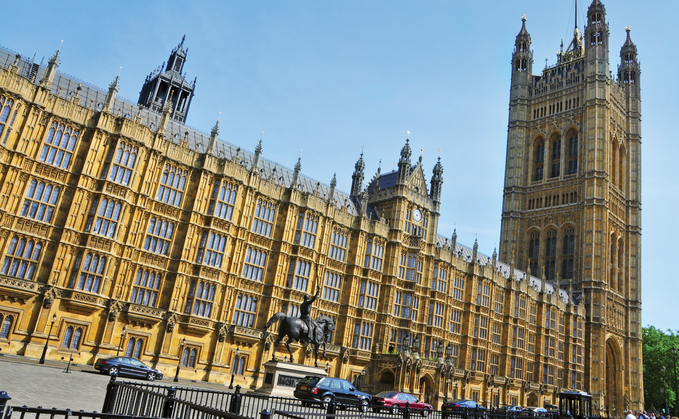
Chancellor Hunt is expected to lay down his Autumn Budget at 11:30am today
Pensions are poised to become ever more complex for schemes with chancellor Jeremy Hunt expected to move the dial in several key areas today (17 November) in a bid to claw back money for the government.
Hunt will deliver the Autumn Budget later this morning - his first as chancellor and the first under new prime minister Rishi Sunak.
The fraught economic situation this year has been matched only by political instability within the UK, the fused situations promising a strict and tax-happy plan from Hunt against the backdrop of 41-year high inflation levels.
While getting national finances back on a long-term sound footing "is critical at a UK national level", Aegon notes people saving for retirement "also need the chancellor's continued support".
Tax increases are clear on Hunt's agenda and it seems the majority back this in order to help boost public finances. An Opinium survey this week found eight-in-ten adults in the UK support tax rises ahead of today's budget, although changes to National Insurance, income tax, and inheritance tax (IHT) are unsurprisingly among the least favoured options.
"Hunt has made it clear that we will all need to pay more in taxes," Aegon pensions director Steven Cameron said, adding: "There's little doubt that he, like many chancellors before him, may be tempted to collect more in taxes by reducing the tax relief available on pensions".
Cameron continued: "There may well be merit in spreading the tax relief granted more equitably across those on different income levels, but we urge care in rushing into complex reforms today which could have damaging consequences longer term such as putting people off saving."
SPP president Steve Hitchiner said the goal of pensions taxation should be "to support and embed sustainable long-term retirement saving" - also warning of potentially damaging consequences of reform.
Hitchiner said: "Pensions tax relief is complex, and the wider implications of any changes may not be immediately apparent.
"Seemingly straightforward changes may be far more complicated and costly to implement than might appear to be the case. If fundamental change is to be considered, the government should take its time and consult widely."
Retirement planning concerns from LTA…
Despite this, many believe the lifetime annual allowance (LTA) freeze put in place by the prime minister 18 months ago when he was chancellor is likely to be extended.
The freeze on just over £1m for another five fiscal years could allow people to build up almost £260,000 less in their pensions before being hit with a tax charge, according to AJ Bell analysis. The price tag on this would cost people around £65,000 in tax-free cash entitlement.
"While the Consumer Prices Index link had been expected to return after 2025/26, it has been suggested Hunt is considering freezing the LTA for a further two years," says AJ Bell head of retirement policy Tom Selby.
He continues: "Although an LTA of just over £1m might sound like a huge amount of money, it puts a relatively low cap on people's retirement aspirations."
A key HM Treasury hope is that money will funnel into ISAs rather than pensions and no long qualify for up-front relief, according to pensions consultancy Lane Clark & Peacock.
Partner Mike Richardson says the freeze is a "highly unpredictable" way of bolstering the government's coffers, however.
"When there is a surge in inflation of the sort we have seen recently, freezes on tax allowances can generate far more revenue than expected," he warns. "As well as creating unpredictability for the government in terms of revenues, long-term freezes and changes in policy also make it very hard for individuals to make long-term plans for their pensions and savings".
Quilter Chartered financial planner Shaun Moore agrees "even more complexity" could be ahead for advisers when it comes to retirement planning.
"Some will argue that freezing the LTA by an additional two years is justified because pensioners have not been as adversely affected financially in the past couple of years in comparison to those of working age, and so they must pay their fair share of the costs," he explains. "However, what this view fails to appreciate is that the LTA is a test on entry into being a pensioner. Someone who became a pensioner before the onset of the pandemic and the cost-of-living crisis seen in the past couple of years is not going to face a lower LTA if their pension is already 100% crystalised and they are withdrawing an income.
"Freezing the LTA will mostly impact people in the workforce today who are forced into retirement because they lose their job."
Triple lock uncertainty drags on…
The ongoing triple lock debate that has seen this key feature of income treated as a Conservative Party football since this time last year is expected to be key in Hunt's plans.
Now, it may be "too politically damaging" to scrap the triple lock despite the high expense, Moore says.
A survey of 4,000 people conducted by Opinium has found raising state pension income in line with inflation is favoured by 68% of adults with 86% in total supporting some form of increase in overall value.
However, the Sunak government has been tight-lipped in recent weeks on whether it will maintain the commitment refreshed by the Truss government in September.
Selby warns that an "attack" on the triple lock would be "a seriously high-risk and deeply unpopular move".
Cameron adds: "Current economic challenges are highlighting just how costly the state pension triple lock is, particularly in volatile conditions when price inflation and earnings growth are unpredictable.
"But, failing to honour the triple lock next April does not sit well with protecting the many vulnerable individuals heavily reliant on the state pension."
If the triple lock is retained, people can expect the full flat-rate state pension to increase from £185.15 per week to £203.85 per week from April. This amounts to £10,600.20 per year. The basic pension for those that have reached or are reaching state pension age after 6 April 2016 will increase from £141.85 per week to £156.20 per week, working out at £8,122.40 a year, AJ Bell confirms.
MPAA concerns more vital than ever…
The money purchase annual allowance (MPAA) is again back on the radar with calls again surfacing for the Treasury to consider reform.
AJ Bell has fronted popular call for a £6,000 increase to bring the MPAA to £10,000 in order to "ease immediate pressure" on savers.
"The rising cost of living is now affecting the lives of millions of Brits and forcing people to take financial decisions they might otherwise not have contemplated, including accessing their hard-earned retirement pot," Selby warns. "Punishing those who access their retirement pot as the rules intend with such a swingeing cut to their annual allowance is deeply unfair and will leave many hamstrung when looking to rebuild their pension after this crisis."
Indeed, a person aged in their 50s on average earnings would only have to pay an extra £151 a month into their pension above the minimum required to exceed the MPAA, Association of British Insurers figures show.
"Paying more than £4,000 a year would mean having tax relief clawed back," Moore says. "This effectively punishes people trying to do the right thing and severely limits their ability to save for retirement in the future.
"It is high time this inflexible rule was scrapped in favour of a general anti-abuse approach similar to that taken for existing pension tax free cash recycling rules, which gets to the crux of the Treasury's concerns."
Chancellor Hunt is expected to lay down his Autumn Budget at 11:30am today.







